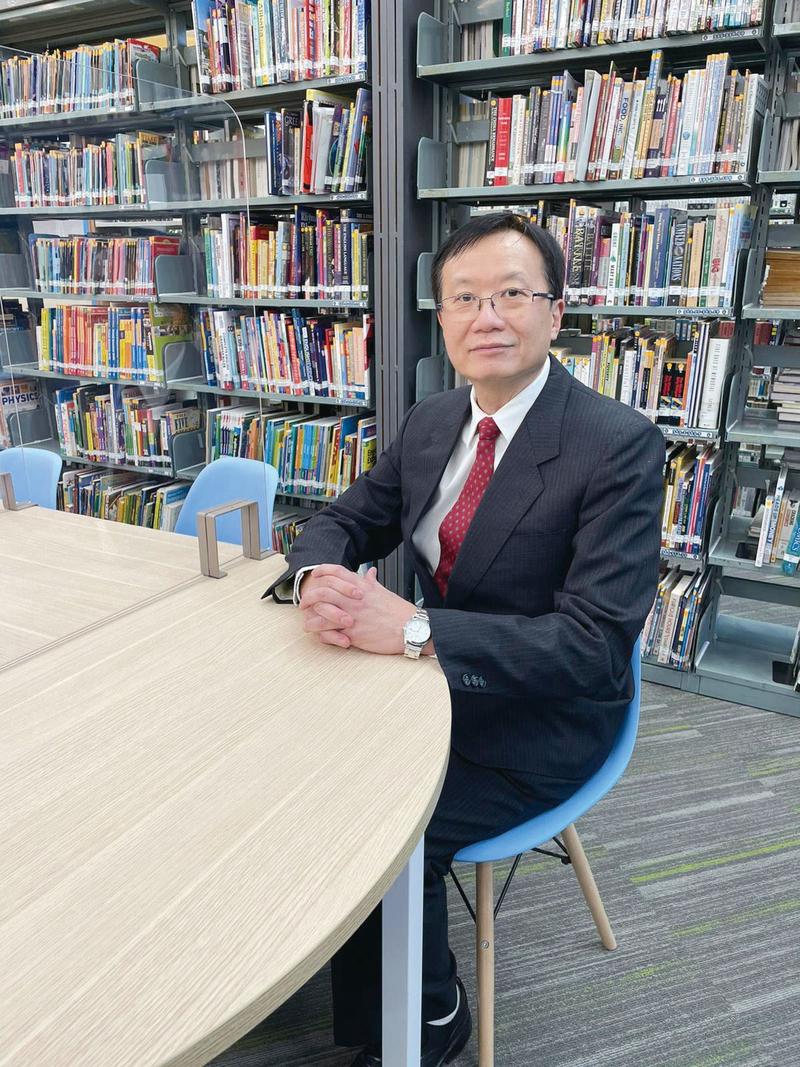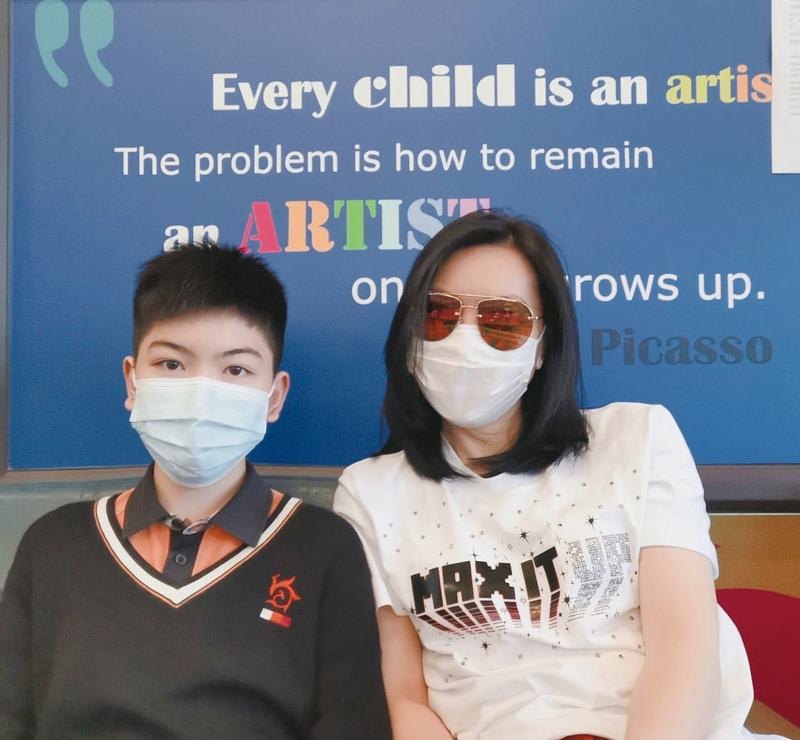New Shenzhen school poised to greet first cohort with multitrack curriculum system
 Hong Kong Chief Executive Carrie Lam Cheng Yuet-ngor (seventh from left) attends the contract-signing cum kickoff ceremony of Pui Kiu College Xinyi School (Shenzhen Longhua) on Feb 10. (PHOTO PROVIDED TO CHINA DAILY)
Hong Kong Chief Executive Carrie Lam Cheng Yuet-ngor (seventh from left) attends the contract-signing cum kickoff ceremony of Pui Kiu College Xinyi School (Shenzhen Longhua) on Feb 10. (PHOTO PROVIDED TO CHINA DAILY)
Editor’s note: In the first of a series on Hong Kong’s education sector, school Principal Tommy Wong Tang-tat talks to Joshua Ho, of the multi-media English-learning platform VDO English.
The Pui Kiu Education Foundation has always been a front-runner in exploring opportunities in the Guangdong-Hong Kong-Macao Greater Bay Area.
Its latest effort is a new school in Shenzhen, founded by the veteran Hong Kong-based sponsoring body to implement a new model of cross-border education. The school will welcome its first batch of students in September.
The school hopes this (boarding arrangement) will help students from Hong Kong and the mainland to better understand each other and learn from each other’s advantages
Tommy Wong Tang-tat, principal of Pui Kiu College Xinyi School
Pui Kiu College Xinyi School, located in Longhua district of Shenzhen, “will become a prime example of how different education systems integrate in one school and how the integrated systems cultivate future talents for the Greater Bay Area,” said Tommy Wong Tang-tat, the school’s principal in charge of local and international curricula.
‘Multitrack’ system
Wong said that Pui Kiu College Xinyi School will be a pioneer in the Greater Bay Area in offering a “multitrack” curriculum system, which means that multiple curricula, targeting different university entrance examinations of the Chinese mainland, Hong Kong and foreign countries, are available at the school.
In Hong Kong, most local students participate in university admission through the Hong Kong Diploma of Secondary Education Examination, while others who want to study abroad take international examinations. On the mainland, students need to go through the gaokao, the national college entrance examination (NCEE), before entering universities.
“Given that different examination systems have different requirements in curriculum structure and contents, implementing two or more curricula at one school requires substantial resources,” Wong said.
Most Hong Kong schools offer curricula designed for only one examination system; a few institutions with relatively abundant resources provide students with both the HKDSE and international tracks.
“It’s difficult to run dual tracks, but triple tracks or multitracks are in demand because of the development of the Greater Bay Area and the further integration of different cities in the area,” Wong said.
Therefore, Pui Kiu decided to test the waters in Shenzhen and pave the way for the exploration of better cross-border education.
The multi-track educational system will satisfy the needs of Hong Kong students on the mainland, while it can also provide more development options for both Hong Kong and mainland students, Wong said.
It can increase students’ flexibility to reach their full potential, he added.
 Principal Tommy Wong Tang-tat says the Greater Bay Area puts multitrack curricula in greater demand. (PHOTO PROVIDED TO CHINA DAILY)
Principal Tommy Wong Tang-tat says the Greater Bay Area puts multitrack curricula in greater demand. (PHOTO PROVIDED TO CHINA DAILY)
Nurturing GBA talents
In Cantonese, pui kiu means “nurturing overseas Chinese children”. The education foundation set up Pui Kiu Secondary School in 1946, and established Pui Kiu College, a school comprising secondary- and primary-school sections, in 2005 in Hong Kong with the aim of nurturing international talents through English-based learning.
The new school in Shenzhen, with primary and secondary divisions, also seeks to provide an immersive English-learning environment to build up and strengthen students’ English competency in exams.
As one of the first schools in Hong Kong to hold national-flag-raising ceremonies, Pui Kiu has nurtured countless talents for the country over the decades.
“Riding on the wave of the development of the Greater Bay Area, the Pui Kiu Education Foundation has found its unique position to align with the country’s initiatives by establishing the new school and exploring new education systems,” Wong said.
He said the school hopes to nurture more talents who are familiar with the Greater Bay Area and have an international vision.
All students of Pui Kiu College Xinyi School, no matter where they come from, will have classes and live together on campus.
The school hopes this will help students from Hong Kong and the mainland to better understand each other and learn from each other’s advantages, Wong said.
In addition, he said, students can make friends and build their professional networks, developing a multicultural social circle.
“All these benefits will facilitate students to better embrace and explore opportunities in the Greater Bay Area,” Wong said.
‘One school, two systems’
According to Wong, Pui Kiu College Xinyi School has enrolled 3,000 students with a 50-50 ratio between Hong Kong and mainland students.
The internationally recognized HKDSE also attracts mainland students, as the examination has no threshold on examinees’ places of residence and the examination is less demanding than the mainland’s gaokao, except for the English subject.
Some mainland students who want to study overseas also take the DSE examination and use the results as a steppingstone to foreign universities, Wong explained.
To help students prepare for the DSE examination, Pui Kiu College Xinyi School has employed 60 teachers from Hong Kong, including experienced subject panel heads and native-English-speaking teachers.
 So Yik-ho and his mother. (PHOTO PROVIDED TO CHINA DAILY)
So Yik-ho and his mother. (PHOTO PROVIDED TO CHINA DAILY)
The school earlier received over 2,000 job applications from Hong Kong, which “shows Hong Kong educators are optimistic about the Greater Bay Area’s development,” Wong said.
The integration of students and faculty members from the mainland and Hong Kong, and the combination of different places’ policies, management mechanisms and curricula, show it is a kind of “one school, two systems”, Wong said.
This is a new exploration of the practice of “one country, two systems” in the education sector, he added.
The further integration of different cities within the Greater Bay Area requires all-around support measures, including housing, education, and medical support. He urged different sectors of both Hong Kong and the mainland to make more collective efforts to boost the development of the 11-city cluster.
Relief for cross-border kids
So Yik-ho, a Grade-Six primary student from Hong Kong-based Pui Kiu College, is excited that he will move to Shenzhen for his Grade-Seven study in Pui Kiu College Xinyi School in September.
The whole family was looking forward to their reunion. So’s father is a businessman based in Shenzhen, while So and his mother have to stay in Hong Kong, as education resources in Shenzhen with a focus on a Hong Kong curriculum and international curricula are limited. The family has endured long periods of separation, especially during the COVID-19 pandemic, for So’s education.
The situation began to change when Pui Kiu College announced its plan to cooperate with Shenzhen Xinyi Education Group to set up a branch in Shenzhen.
“Pui Kiu College Xinyi School can fulfill the education need of Hong Kong residents whose children live on the mainland,” So’s mother said.
What led the family to make up their minds to transfer So to Shenzhen to study is the good reputation of the sponsoring body behind the school.
“They emphasize character development, English learning and cultivating students’ international visions,” So’s mother said.
In addition, she thinks this is a good opportunity for her son to better adapt to the life on the mainland and life in the Greater Bay Area.
“As my husband works in Shenzhen, our family understands the importance of letting our children integrate into the Greater Bay Area,” she said.
What attracts So most is that Pui Kiu College Xinyi School provides boarding services to students. “I will love the boarding-school life, as I can meet and live with students from different backgrounds,” So said.
His mother said she hopes boarding at school can help So cultivate better interpersonal skills, “which could benefit both his study and future career”.
Contact the writer at joshuaho@chinadailyhk.com


